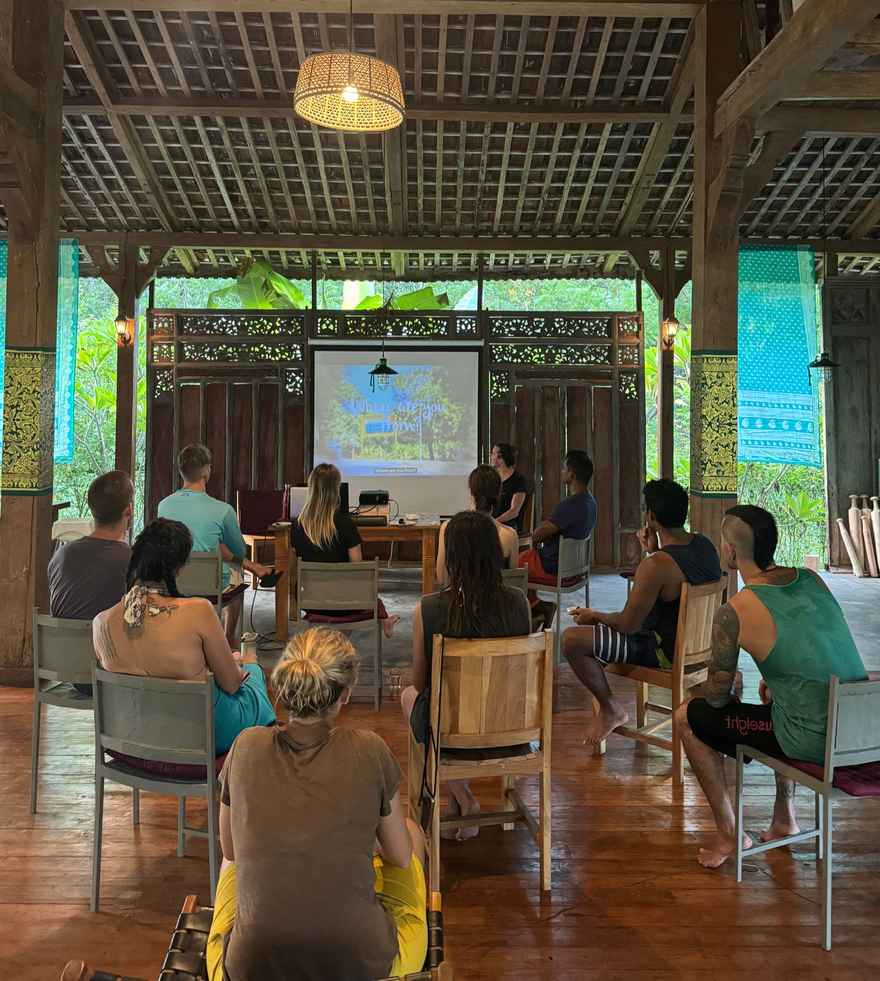What happens when you shift the power dynamics of pedagogy?

This text is adapted from a chapter called "Pedagogy" written by Jonathan Dawson from the book Pluriverse: A Post-Development Dictionary created by Alberto Acosta.
Pedagogy: from the middle French (16th century), from Latin paedagogia, ‘education, attendance on boys’, from paidagogos ‘teacher’.
Challenging Assumptions in Education
Our current educational systems have many dominating core assumptions that are so deeply entrenched in us that we are rarely even aware of their existence. The assumptions include the belief that
- Knowledge is fixed and must be transmitted within subject-specific silos by an “expert” teacher.
- The intellect is the only legitimate faculty for learning.
- Learning is an individual and competitive process, where collaboration is seen as "cheating."
However, there is a wave of alternative thinking that challenges these beliefs and that embraces collaboration and mutual learning.
The Role of Power in Learning
In his book Pedagogy of the Oppressed, the Brazilian thinker and educator Paulo Freire explored the power dynamics that shape our learning experiences and determine what is accepted as objective truth. Building on Freire's insights, we can understand that the language we use to interpret the world is not a neutral representation of reality. Instead, it reflects the structural power relations embedded within society. The idea of "objective truth" is, in fact, a social construct.
Seen in this light, the centre of authority needs to shift from the teacher to the learning community, with the role of the educator being ‘to draw out from’, recast as a resource, mentor, provocateur and, in some sense, peer rather than only a transmitter of information. Gaia Education curriculum and methods were heavily influenced by this shift of roles which is why we often refer to facilitators as the guides of our courses. Rather than embarking information, they are there to facilitate conversations and mutual learning.
Decolonizing Education
Throughout history, education has often been used as weapon in colonisation and for example Universidad de la Tierra, or Unitierra, in Oaxaca, Mexico, was created in response to a belief that ‘[t]he school has been the main tool of the State to destroy the Indigenous people’
The validation of the subjective that this entails brings the classroom back to life. Students are no longer required to park their emotions, intuition and bodies at the classroom door. Rather, they are invited into a space that welcomes their creativity and playfulness, their passions and their tears. The student’s role shifts from that of object to be operated on to a subject within relationships.
A Holistic Approach to Education
An example of this more holistic approach is found at Schumacher College in Devon, England, were students and staff work side by side and grow food, cook, wash dishes, clean and maintain the buildings - all while engaging in the more "heady" subjects.
A growing number of studies and surveys of innovative educational initiatives are finding that this more holistic approach to education – one that stimulates ‘head, heart and hands’ – is significantly more effective in catalysing behaviour change and enabling students to engage critically and creatively with the values, skills, and knowledge requirements of the sustainability-related challenges we face.
The competitive, hyper-rational ideal of many current systems has left us bereft of meaning while the Earth burns🌎 A recasting of the form and purpose of learning is a powerful place to start.
If you are interested in learning more about power shifting, decolonising education and transformative education, you can sign up for our course created by Jonathan Dawson, the Transformative Education starting October 14th in the button below.

Image from Conger Design


0 comments
Leave a comment